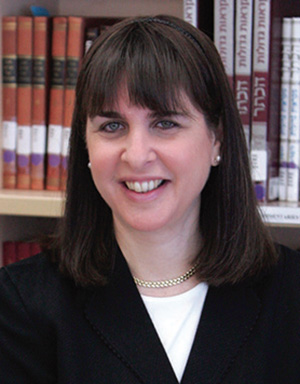
The Talmud in Rosh Hashanah 10B describes a dispute between two Sages about the date of creation. Rabbi Eliezer insists that God created the world in the month of Tishrei, while Rabbi Yehoshua contends that the world was created in the month of Nisan.
The argument between Rabbi Eliezer and Rabbi Yehoshua over the month of creation is not merely academic—it has very important practical ramifications. Each rabbi assumes that Rosh Hashanah—the Jewish new year—should be celebrated on the anniversary of the creation of the world and human beings. Should the date of Rosh Hashanah, which celebrates creation, be set in the spring (Nisan) or in the fall (Tishrei)?
Rabbi Yehoshua’s position that the new year should be celebrated in Nisan finds its roots in the 12th chapter of Sefer Shemot (12:2), which calls Nisan the first month of the year. Immediately before the Israelites leave Egypt, God commands, “This month is for you the head of the months; it is for you the first month of the year!” It is less clear, however, how Rabbi Eliezer derives his position, as there is no reference in the Torah to a New Year in Tishrei. What we celebrate today as Rosh Hashanah is described in the Torah (Vayikra 23:24-25) as a zichron teruah—a holy day commemorated with long blasts of the shofar—that is to be observed on the first day of the seventh month (Tishrei).
The 13th-century commentator Ramban attempted to harmonize the two rabbinic positions. The Jewish calendar, he claimed, really has two beginnings. The year begins in Tishrei, when the world was created, but the months are counted from Nisan, when the nation of Israel was born. When we call Nisan the first of the months, we mean that Nisan is the first month following the redemption of the nation of Israel from Egypt. This is the significance of the words “This month is for you the head of the months…” Nisan is not the beginning of the year for the whole world, but it is the first month for you—for the people of Israel—because it was then that Israel became a free and independent nation.
Our rabbis ultimately accepted the opinion of Rabbi Eliezer that the world was created in Tishrei. This idea is mentioned many times in our prayer service on Rosh Hashanah. Every time we hear the sound of the shofar during Musaf, we respond with the words “Hayom harat olam—on this day the world was created.” It would seem that the rabbis chose to set Rosh Hashanah in the month of Tishrei to emphasize that it is a day of repentance and judgment for every person. As the Mishnah (Rosh Hashanah 1:2) states: “On Rosh Hashanah all the earth’s inhabitants pass before God like a flock of sheep.” On the anniversary of creation, every human being gets a moment with God to determine if he or she will merit another year.
What lesson can we learn from the fact that Judaism recognizes two beginnings—Rosh Hashanah in Tishrei, commemorating humankind’s creation, and the month of Nisan, commemorating the birth of the nation of Israel? Rosh Hashanah celebrates every individual and all of humanity. But the month of Nisan celebrates the special destiny of the Jewish people. The existence of two beginnings of time in the Jewish calendar teaches us that in Judaism, national identity and individual humanity are important values that go hand in hand.
The existence of two roshei shana—two New Years—also reflects the complexity of blending a religious life with a life in the wider world. Rabbi Joseph Dov Soloveitchik described this challenge with extraordinary eloquence: “What do we say to the Jew from America? You are a stranger and a resident. You can participate fully in all political, cultural and economic activities. You may feel yourself a resident at the university, in the laboratory, in financial circles, in the press, in Congress—but this is not all. You possess a world that is entirely your own, a world of sanctity and chesed (lovingkindness), of Torah, of the Shabbat and of education.”
Rosh Hashanah is the season of introspection and resolution for every Jew. It is the season to reflect on the year that has passed and to set priorities for the future. If so, as we make our New Year resolutions, each of us must consider our dual role—as human beings and as Jews. We must seek to harmonize our universal destiny as part of God’s creation with our unique identity as God’s chosen nation.
As we celebrate the anniversary of creation, we must challenge ourselves to be the best human beings and the best Jews that we can possibly be.
By Rachel Friedman
Rachel Friedman is dean of Lamdeinu, the center for adult Torah learning in Teaneck. Please visit lamdeinu.org for schedule and events.










